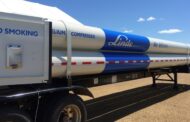Brazilian mining juggernaut Vale is bringing in giant trucks from Caterpillar with a surprising twist: They are all electric.
Vale is a $4.5 billion operation that mines a variety of elements, including nickel, copper, and manganese needed for modern technology, according to data collector Statista.
In 2021, the company announced that it sold its coal assets. The addition of the 240-ton capacity electric trucks is also part of the company’s efforts to operate more cleanly in the coming decades.
To begin with, Vale’s ambitious plan is to cut pollution by 33% by 2030 before hitting net zero by 2050.
ADVERTISEMENT
“We are developing a portfolio of options to decarbonize Vale’s operations, including electrification and the use of alternative fuels in the mines. The most viable solutions will be adopted,” Ludmila Nascimento, Vale’s energy and decarbonization director, said in a press release.
Adding ethanol to the fuel mix for other equipment is also part of the game plan to reduce diesel pollution, which Vale reports accounts for 15% of its air pollution.
Watch now: Honda reveals how it’s rethinking electric vehicles from the ground up with exciting new concept cars
Caterpillar unveiled an electric heavy-duty truck in 2022. It looks to be about as big as a two-story building, weighing more than a blue whale. The tires alone are each the size of most vehicles. The colossal ride will be tested at Vale’s Minas Gerais site.
The news marks an interesting intersection of pursuits. Mining for lithium and other elements needed for batteries — some perhaps ironically harvested by Vale — can be an invasive and dirty process. Though EVs are cleaner than dirty fuel alternatives, even with current mining methods.
Japan’s Komatsu is another company offering big electric machines for the sector. The business recently made headlines for its electric jumbo drill and roof bolter. It’s an exciting look at the next wave of EV tech and how it can impact even humongous tasks.
Many companies have what are becoming boilerplate climate-related vows, often with benchmarks at 2030 and 2050. In some cases, the reality falls short of the billing. Staying educated about how businesses measure up to their sustainability goals can help prevent greenwashing and ensure they hit the mark.
If successful, the cleaner operations can provide for fresher air and healthier breathing. Diesel exhaust can be harmful when inhaled, particularly for people with asthma and heart or lung diseases, according to health experts.
For Vale’s part, officials announced in 2020 that the company will pump up to $6 billion into planet-friendly efforts. The partnership between Vale and Caterpillar could provide key validation for electric heavy equipment.
“There have been significant advances in the development of electric truck technology in recent years and these innovations will play an important role in bringing our net emissions to zero by 2050,” José Baltazar, Vale’s director of engineering for mine and plant operations, said in the press release. “We are offering our mines in Brazil as a testing ground, with their very specific characteristics, in order to contribute to achieving our goals and building a cleaner mining industry.”
Join our free newsletter for weekly updates on the coolest innovations improving our lives and saving our planet.













